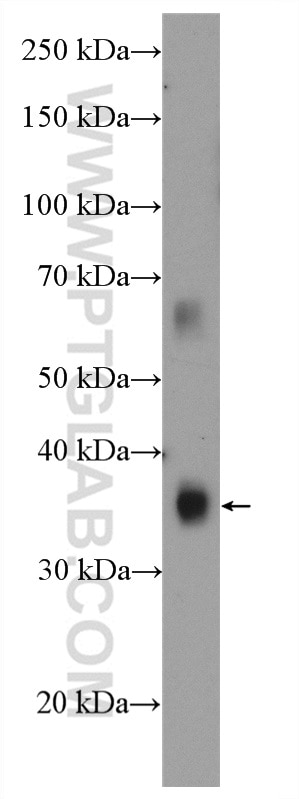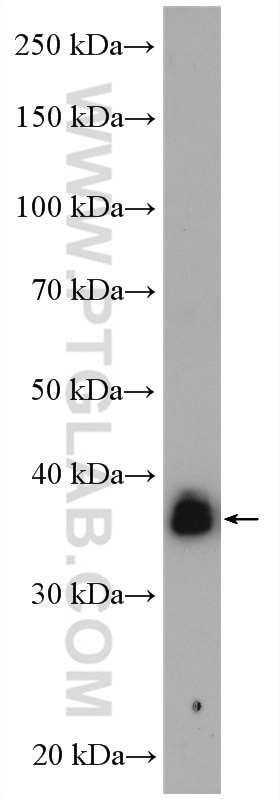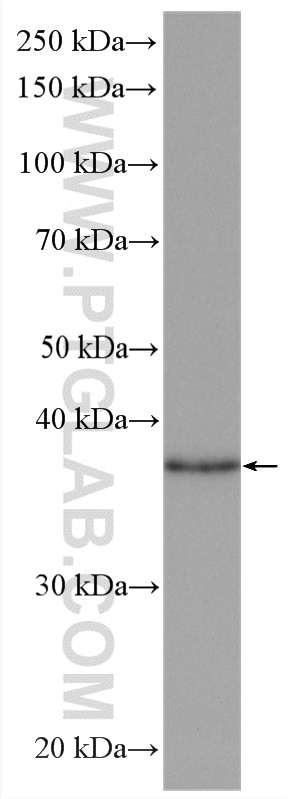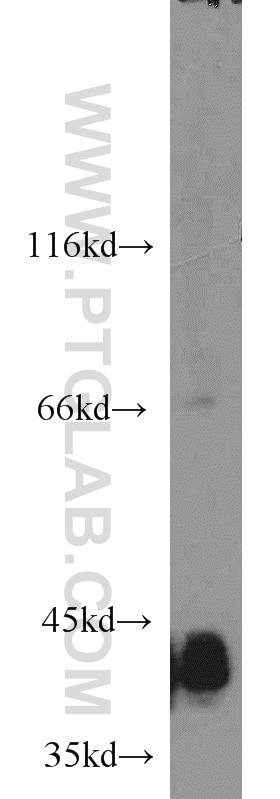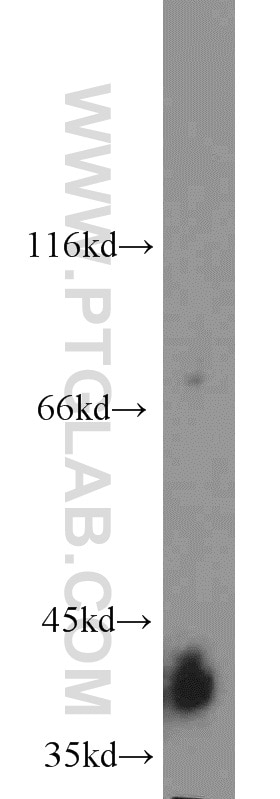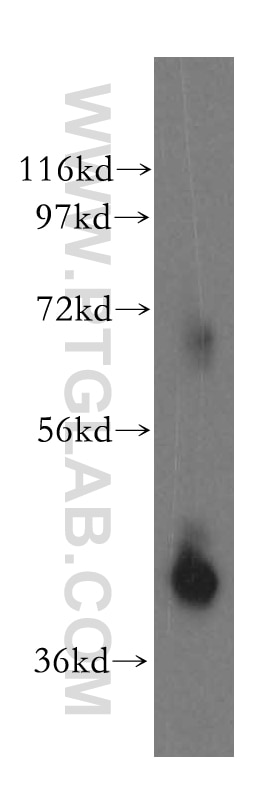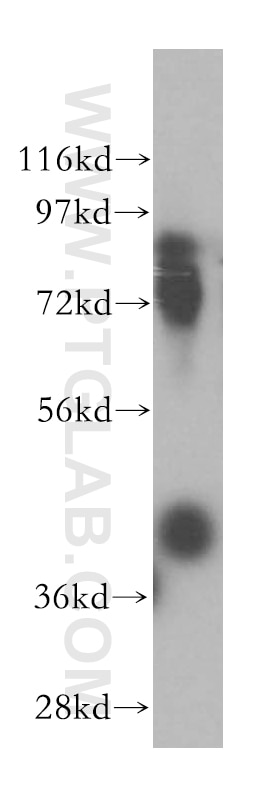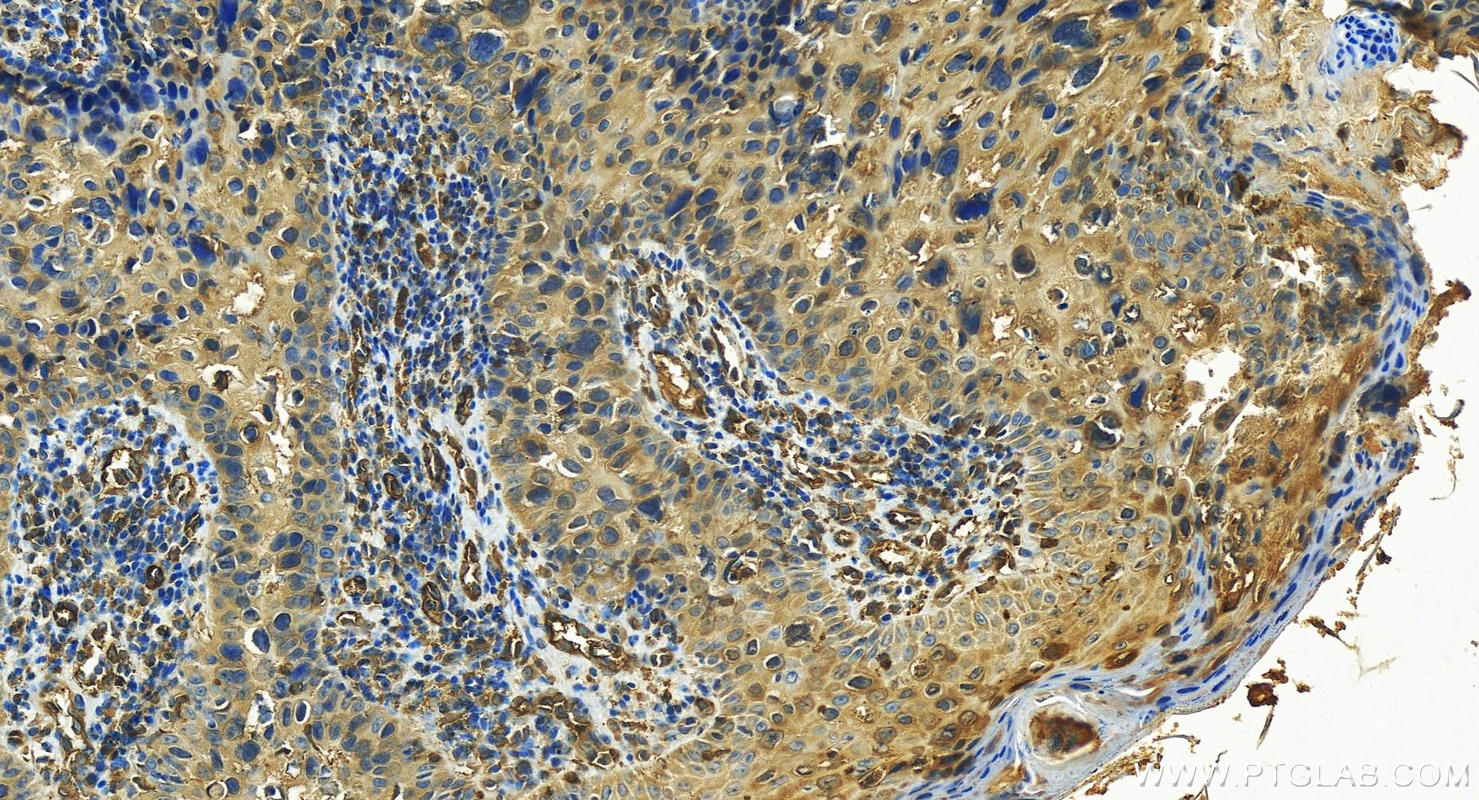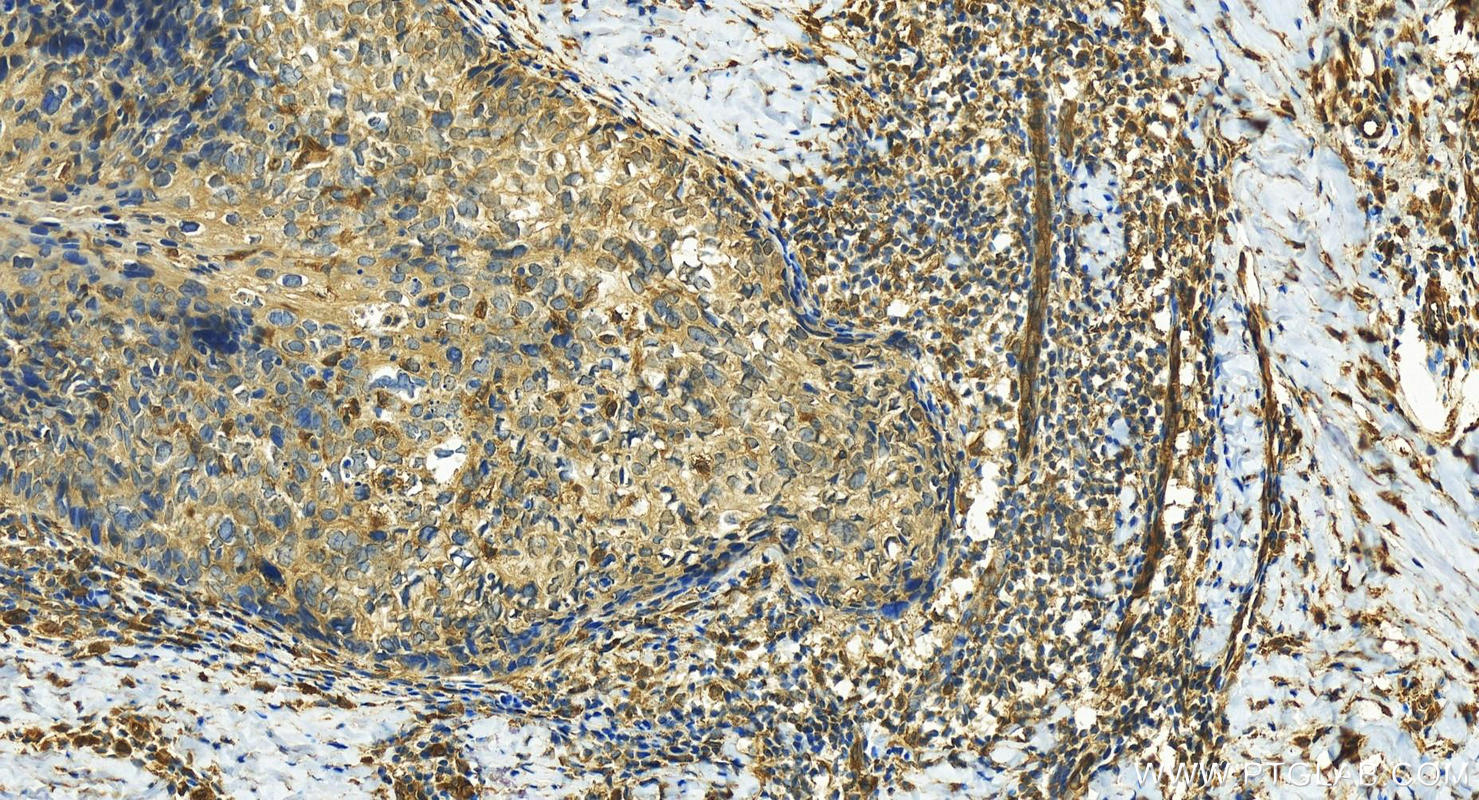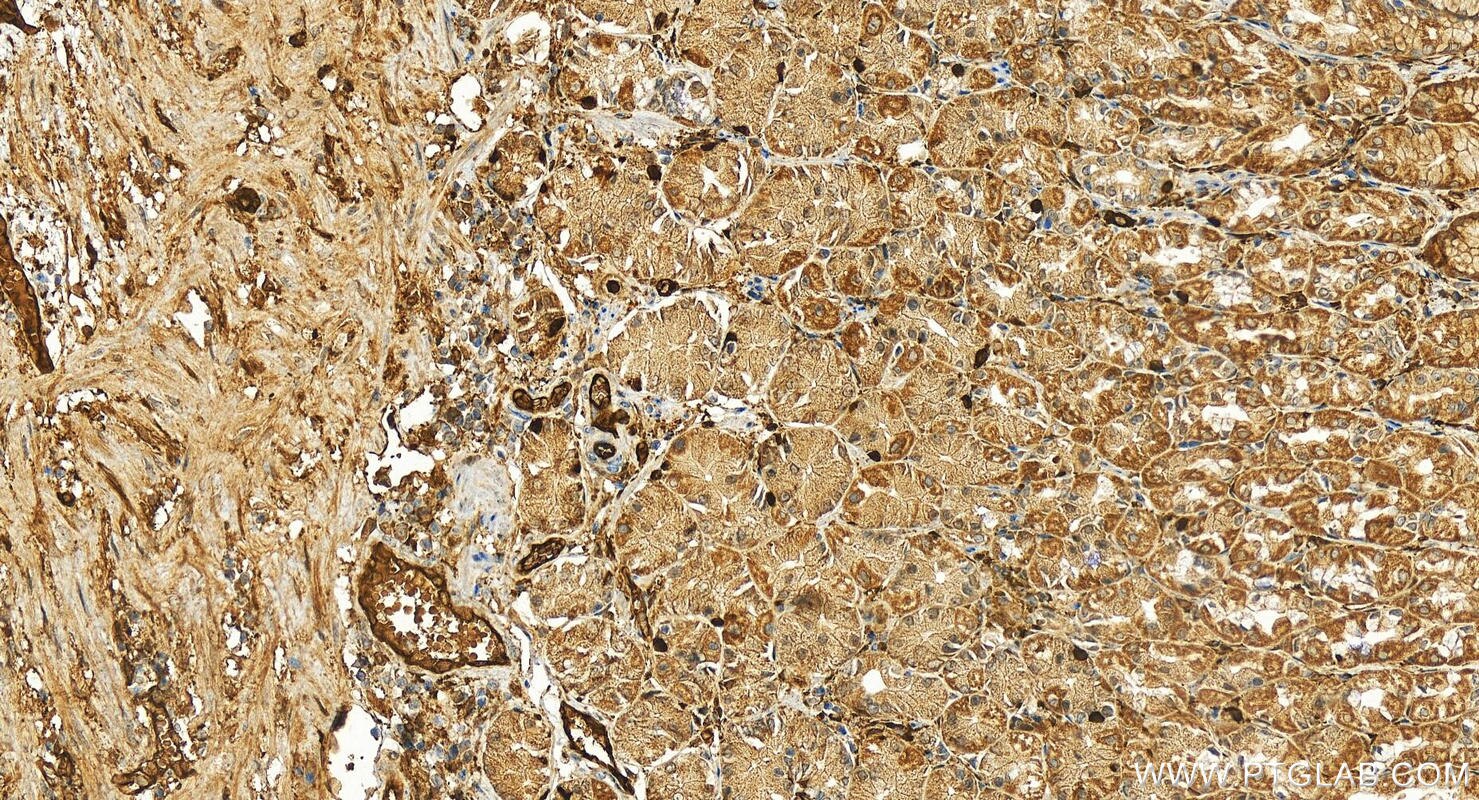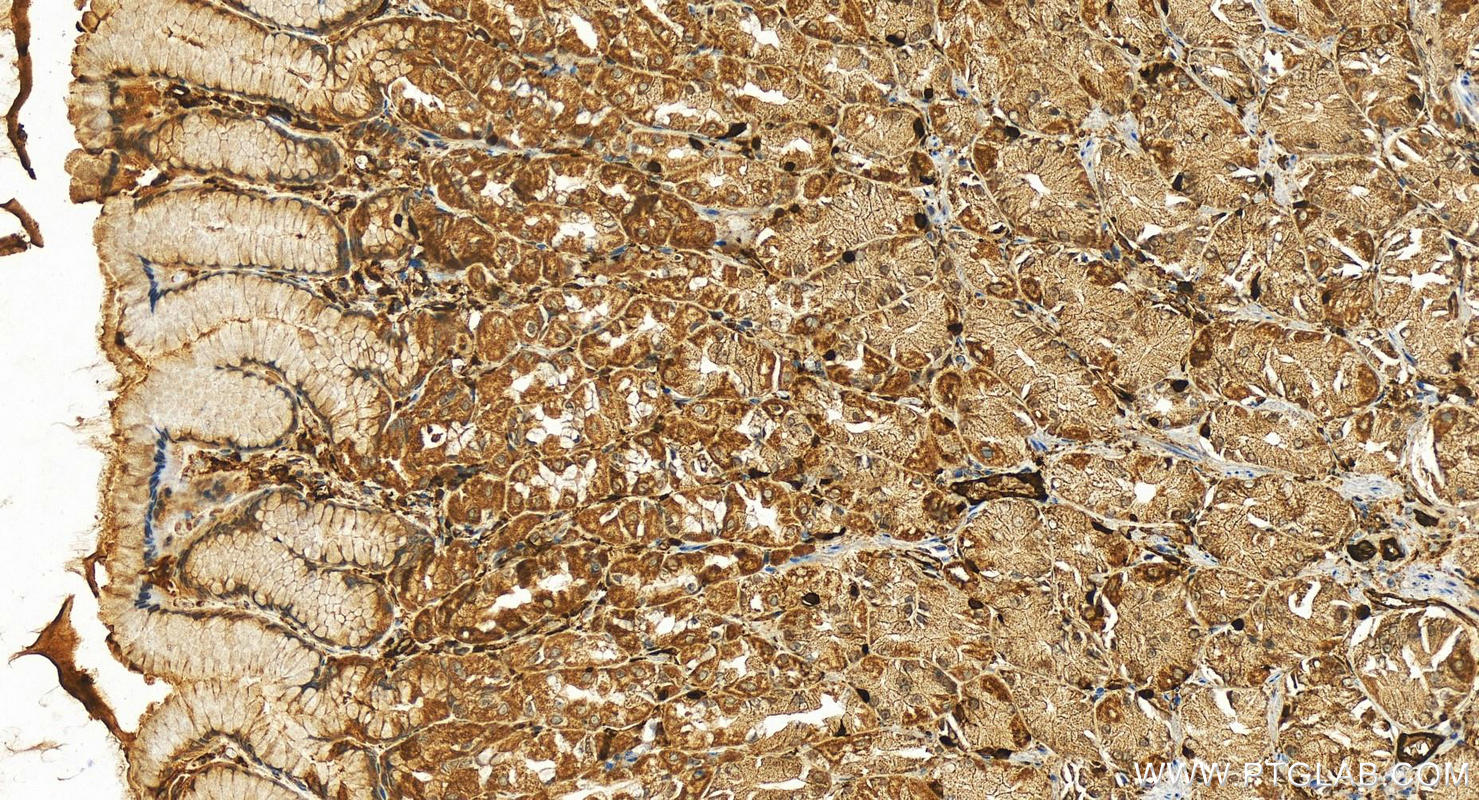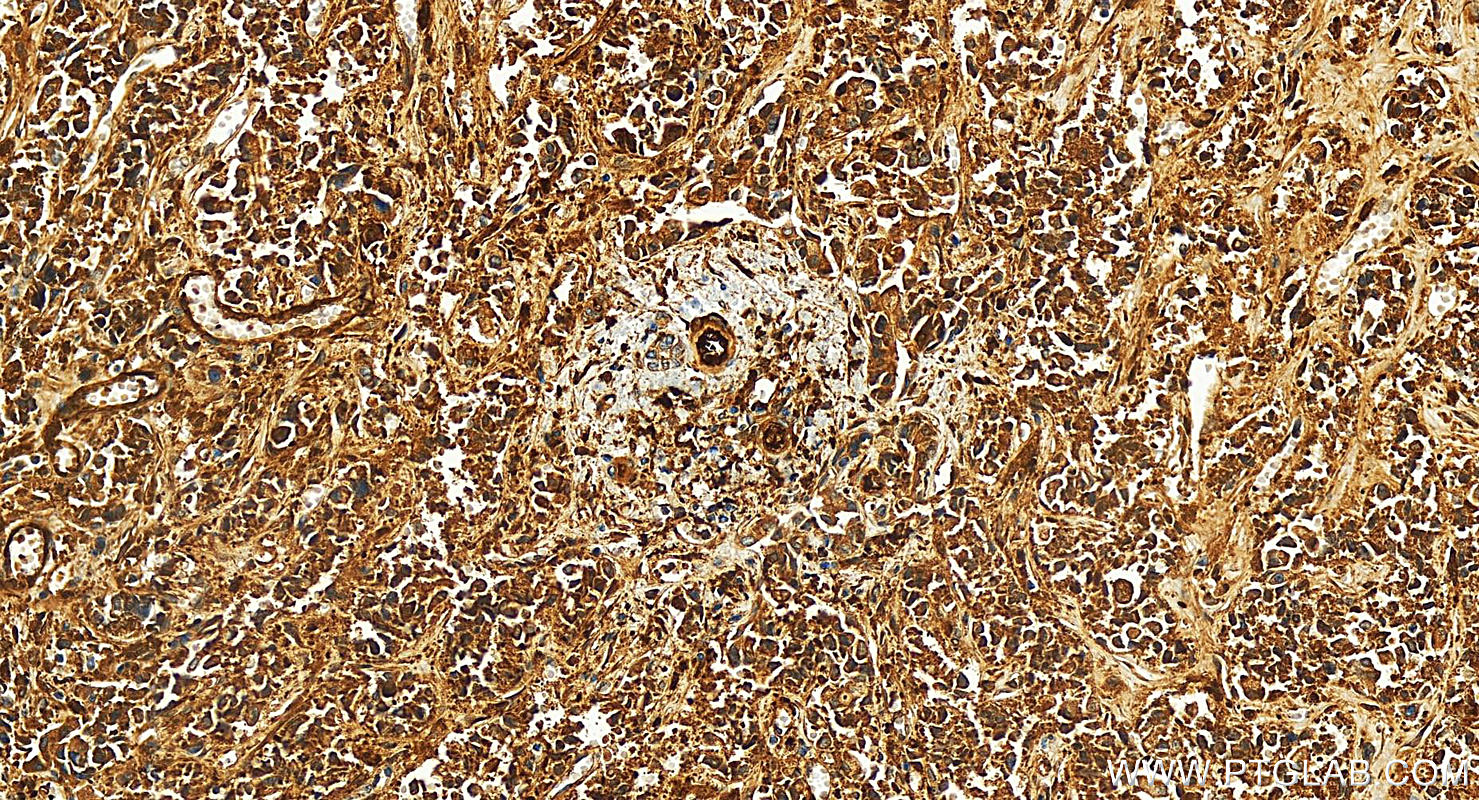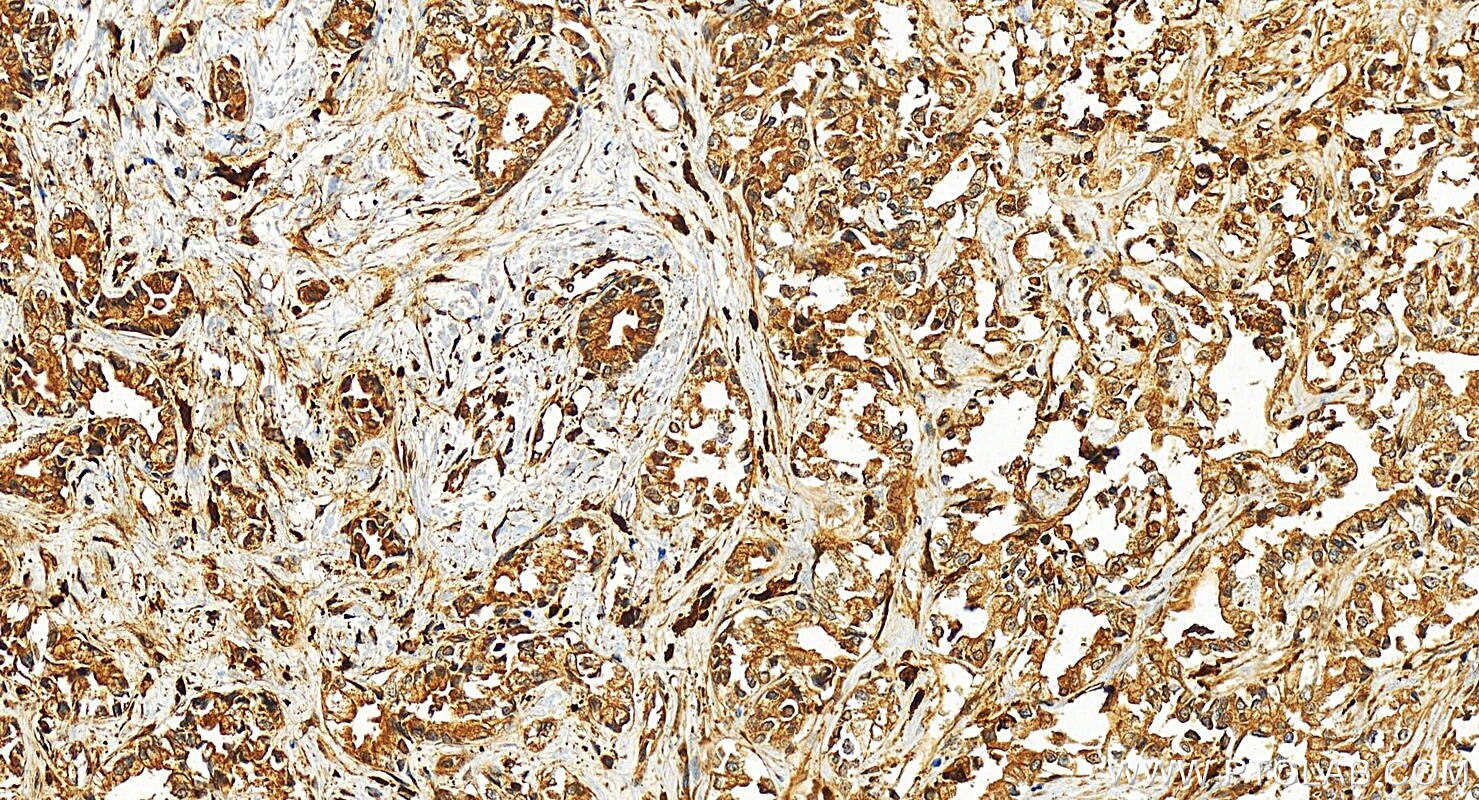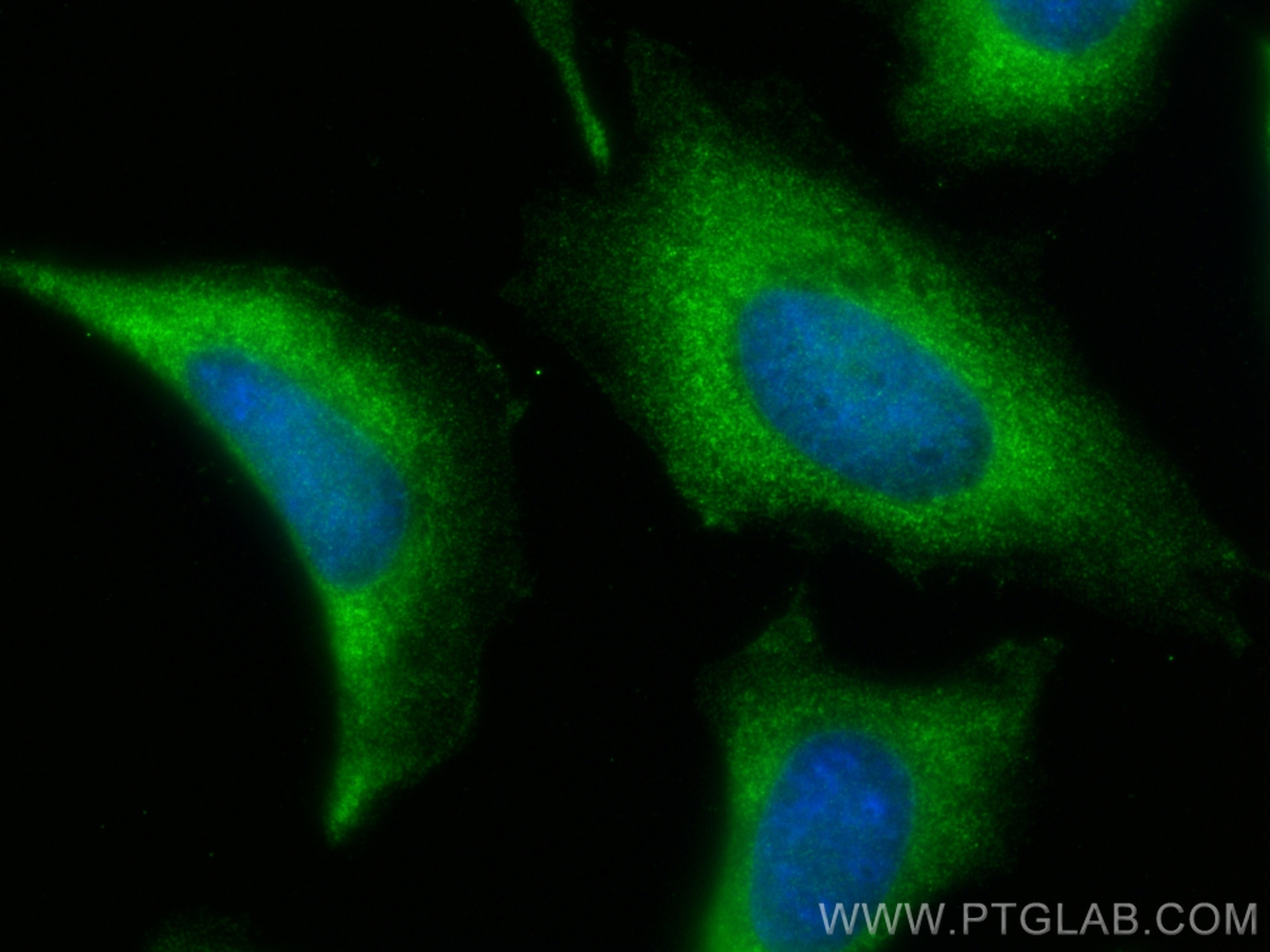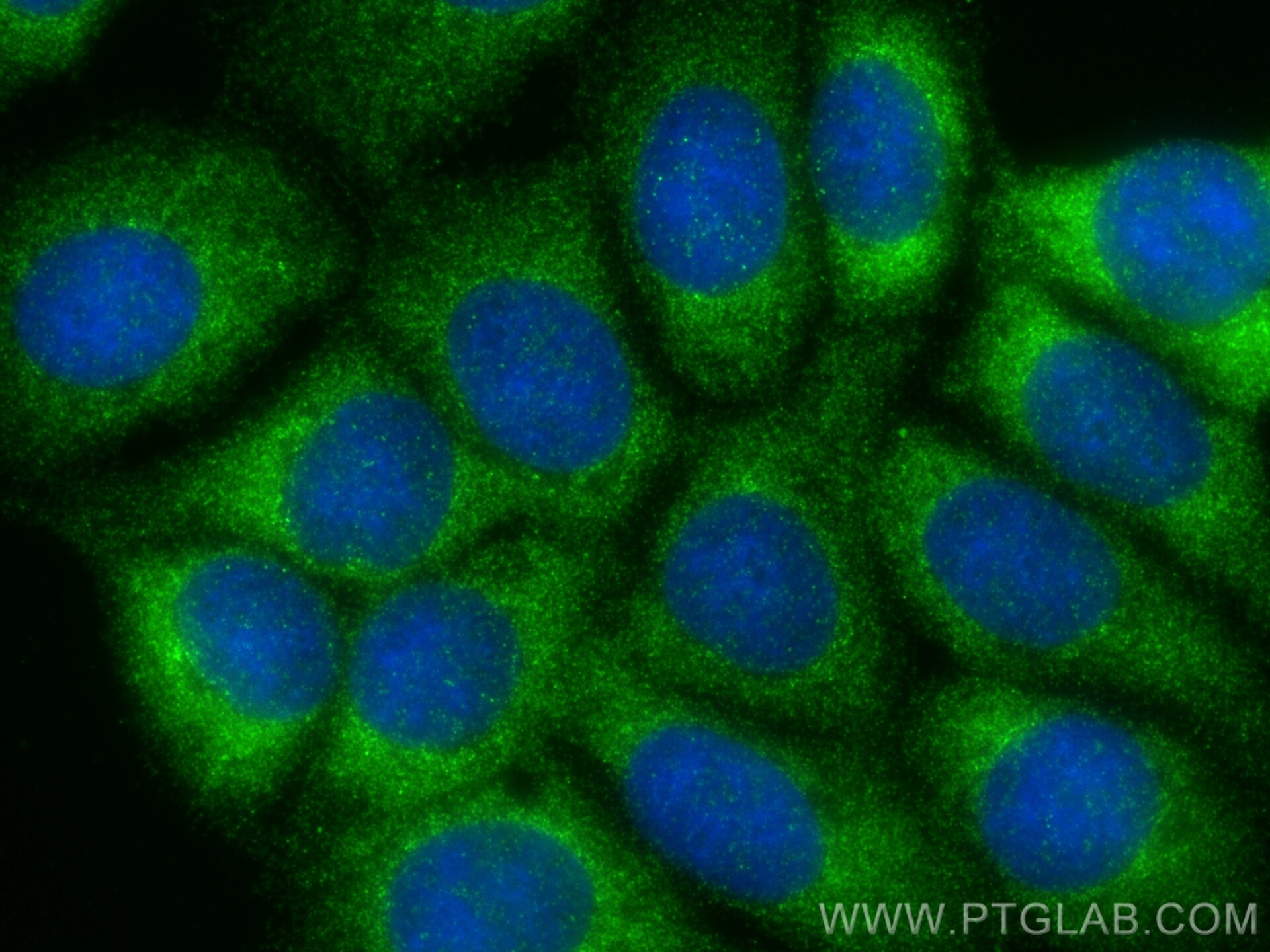Validation Data Gallery
Tested Applications
| Positive WB detected in | mouse brain tissue, MCF-7 cells, human brain tissue, HEK-293 cells, Hela cells, rat brain tissue |
| Positive IHC detected in | human bowen disease, human intrahepatic cholangiocarcinoma tissue, human stomach tissue Note: suggested antigen retrieval with TE buffer pH 9.0; (*) Alternatively, antigen retrieval may be performed with citrate buffer pH 6.0 |
| Positive IF/ICC detected in | MCF-7 cells, HeLa cells |
Recommended dilution
| Application | Dilution |
|---|---|
| Western Blot (WB) | WB : 1:500-1:2000 |
| Immunohistochemistry (IHC) | IHC : 1:50-1:500 |
| Immunofluorescence (IF)/ICC | IF/ICC : 1:200-1:800 |
| It is recommended that this reagent should be titrated in each testing system to obtain optimal results. | |
| Sample-dependent, Check data in validation data gallery. | |
Published Applications
| KD/KO | See 3 publications below |
| WB | See 6 publications below |
| IHC | See 2 publications below |
| IF | See 5 publications below |
Product Information
15523-1-AP targets KCTD12 in WB, IHC, IF/ICC, ELISA applications and shows reactivity with human, mouse, rat samples.
| Tested Reactivity | human, mouse, rat |
| Cited Reactivity | human, mouse |
| Host / Isotype | Rabbit / IgG |
| Class | Polyclonal |
| Type | Antibody |
| Immunogen |
CatNo: Ag5716 Product name: Recombinant human KCTD12 protein Source: e coli.-derived, PET28a Tag: 6*His Domain: 1-325 aa of BC013764 Sequence: MALADSTRGLPNGGGGGGGSGSSSSSAEPPLFPDIVELNVGGQVYVTRRCTVVSVPDSLLWRMFTQQQPQELARDSKGRFFLDRDGFLFRYILDYLRDLQLVLPDYFPERSRLQREAEYFELPELVRRLGAPQQPGPGPPPSRRGVHKEGSLGDELLPLGYSEPEQQEGASAGAPSPTLELASRSPSGGAAGPLLTPSQSLDGSRRSGYITIGYRGSYTIGRDAQADAKFRRVARITVCGKTSLAKEVFGDTLNESRDPDRPPERYTSRYYLKFNFLEQAFDKLSESGFHMVACSSTGTCAFASSTDQSEDKIWTSYTEYVFCRE 相同性解析による交差性が予測される生物種 |
| Full Name | potassium channel tetramerisation domain containing 12 |
| Calculated molecular weight | 36 kDa |
| Observed molecular weight | 36 kDa |
| GenBank accession number | BC013764 |
| Gene Symbol | KCTD12 |
| Gene ID (NCBI) | 115207 |
| RRID | AB_2132006 |
| Conjugate | Unconjugated |
| Form | |
| Form | Liquid |
| Purification Method | Antigen affinity purification |
| UNIPROT ID | Q96CX2 |
| Storage Buffer | PBS with 0.02% sodium azide and 50% glycerol{{ptg:BufferTemp}}7.3 |
| Storage Conditions | Store at -20°C. Stable for one year after shipment. Aliquoting is unnecessary for -20oC storage. |
Background Information
KCTD12 also known as PFET1 or PFETIN, which contains a voltage-gated potassium (K+) channel tetramerization T1 domain and a BTB/POZ (Bric-a-brac, Tram-track, Broad complex poxvirus and zinc finger) domain, belongs to the KCTD family and was initially identified in cochlea. In addition to being a K+ channel protein that responds to membrane potential7, KCTD12 also acts as an auxiliary subunit of GABAB (γ-aminobutyric acid type B) receptors, which regulate emotionality and neuronal excitability.
Protocols
| Product Specific Protocols | |
|---|---|
| IF protocol for KCTD12 antibody 15523-1-AP | Download protocol |
| IHC protocol for KCTD12 antibody 15523-1-AP | Download protocol |
| WB protocol for KCTD12 antibody 15523-1-AP | Download protocol |
| Standard Protocols | |
|---|---|
| Click here to view our Standard Protocols |
Publications
| Species | Application | Title |
|---|---|---|
Cell Death Dis Male-specific lethal 1 (MSL1) promotes Erastin-induced ferroptosis in colon cancer cells by regulating the KCTD12-SLC7A11 axis | ||
Oncogene KCTD12 promotes tumorigenesis by facilitating CDC25B/CDK1/Aurora A-dependent G2/M transition.
| ||
Pharmacol Res The effects of Kctd12, an auxiliary subunit of GABAB receptor in dentate gyrus on behavioral response to chronic social defeat stress in mice. | ||
J Neurosci KCTD8 and KCTD12 Facilitate Axonal Expression of GABAB Receptors in Habenula Cholinergic Neurons.
| ||
Sci Rep KCTD12 Regulates Colorectal Cancer Cell Stemness through the ERK Pathway.
| ||
Front Mol Neurosci The Electrophysiological Determinants of Corticospinal Motor Neuron Vulnerability in ALS. |

